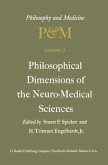Professor Wilhelm Blasius, physiologist at Giessen in West Germany, has written a book "Probleme der Lebensforschung" (Verlag Rombach, Freiburg 1973) which - I understand - is to be published in an English version. To me it has been of interest as an orientation in a world of traditional German thinking, best known from Goethe's natural philosophy of perceptible "Ur bilder", which perhaps in English could be rendered descriptively by calling it an inner vision of further irre ducible totalities. It is in contemporary language a kind of intuitive 'holistic' insight which represents understanding different from that of natural science. The latter is devoted to the study of causal chains, is largely experimental and in its aim ultimately 'reduc tionist' -to use another modern term. Goethe's approach is reincarnated in the "Wesenslehre" of the late Ludwig Klages (1872-1956) and in the thinking of Carl Gustav Caruso To Klages the perceived image alone is the meaning of everything in this world and in this sense he is the advocate of a psychological phenom enology that is an end in itself. Originally trained as a chemist Klages soon turned to philosophy and de veloped a system of concepts supposed to give a deeper insight into the essence of life than did the endless causal chains of natural science. Blasius makes much use of the concepts of this philosopher, in particular his ideas on 'polarities'.
Hinweis: Dieser Artikel kann nur an eine deutsche Lieferadresse ausgeliefert werden.
Hinweis: Dieser Artikel kann nur an eine deutsche Lieferadresse ausgeliefert werden.








